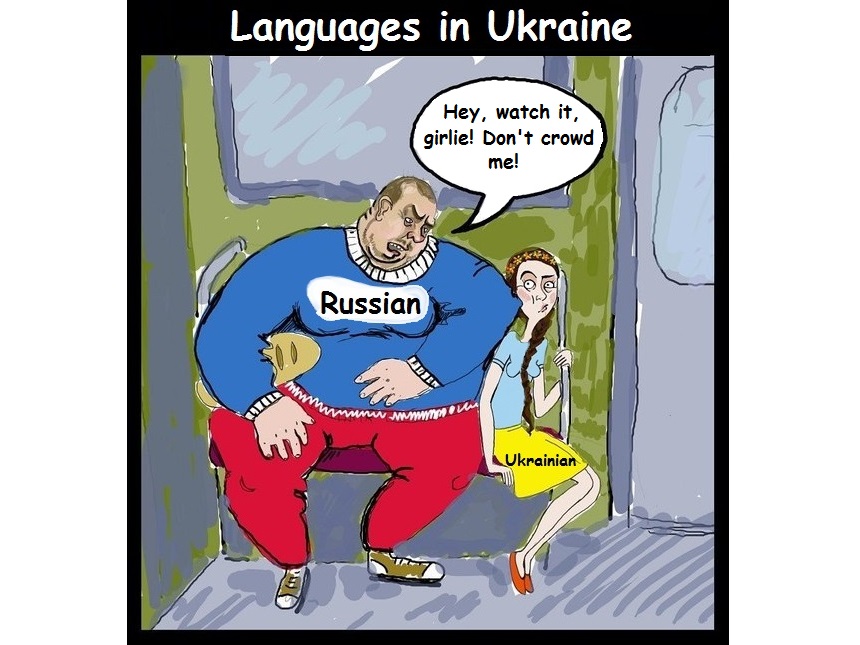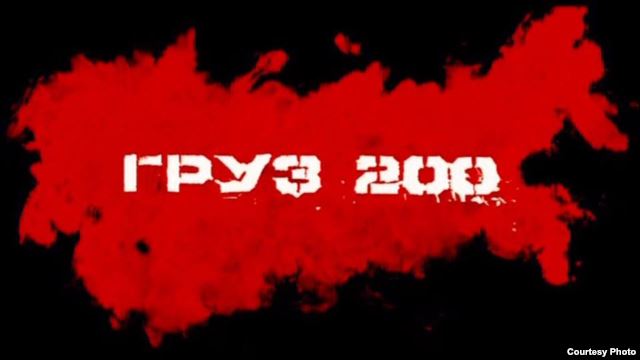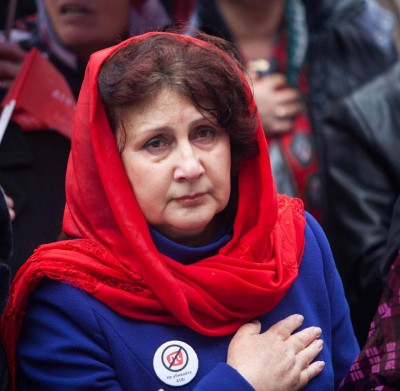Various officials tell Russian magazine The New Times of a troubling change in the decision-making process
In early August Vladimir Putin banned importing certain American and European food products to Russia: this was the country's response to the third wave of Western sanctions against Russian banks and financial institutions. While the politicians and experts in Brussels and Washington were still counting the embargo losses, Russian officials were already drilling holes in the brand-new Iron Curtain. It turned out that the decision on banning foreign food did not take into account people with lactose intolerance, certain forms of diabetes, rare allergies and other diseases: There are no or almost no products in Russia they can safely consume. But in the turmoil of rash decisions these people were simply left forgotten. Two weeks after signing the notorious embargo order the Government corrected its own directive on banned food adopted by the President's will. Lactose-free milk was once again allowed for imports, and while they were at it they closed off a channel of supplying European fish to Russia bypassing the ban. In early August no one realized that Norwegian salmon could reach Moscow and St. Petersburg in violation of Putin's order, if you brought it in alive and not prepared.
The end of Politburo 2.0.
The story of lactose-free milk and live salmon is a vivid example of how state-level decisions are taken now in Russia. Before the start of the new Cold War Russia was considered to be governed by a "Politburo 2.0" - this concept was developed by political scientist Evgeniy Minchenko. By "Politburo" he meant several leading bureaucratic clans Putin craftily made quarrel, then make peace, then quarrel again, keeping the arbitrage function for himself. This "politburo" or "big government" consisted of several Kremlin officials, several vice-prime ministers, entrepreneurs and state capitalists close to Putin, part of the siloviki: they slowly, behind closed doors, developed versions of decisions on the most important issues of the country's development and then Putin either took a side or made them compromise. But the "politburo", like many other things, did not survive the annexation of Crimea and the war in Ukraine. Now there is no Politburo. Putin takes all the decisions on internal and external policy, economy, etc. on his own, sources say, and sometimes does it solely on a situational basis, as a lighting reaction to the West's actions. There's neither strategy nor tactics there, it's "solo poker", says a Kremlin official.
FSB in power
The people currently closest to the President is the head of the FSB (Federal Security Service) Alexander Bortnikov, 5 of his deputies and several department heads, says a former high-ranking government official. Putin meets them almost every day, sometimes the head of the President's administration Sergey Ivanov is invited, sometimes he is not. Ivanov has turned into a yesman, another government official describes the role of the administration's head, he doesn't influence anything but always agrees with the president. Another source when asked about the role of the President administration's head in decision making, joins his thumb and index finger to form a zero. The FSB officials close to the president are actually almost omnipotent and since summer have been preparing the most important political decisions almost single-handedly.
The FSB's role in the new Russia is illustrated by the story of the government adopting directive No758 of July 31, 2014, regulating the rules of connection to public data transfer networks. To connect to a public WiFi network you have to show your ID - the FSB has been lobbying it since 2011. In July this year all the papers were ready and got on the table of Arkadiy Dvorkovich, the vice-prime minister supervising communications. Dvorkovich refused to sign them, told this to the Ministry of Communications and went on vacation for several days. While he was on vacation, the directive without his approval was signed by the Prime-Minister Dmitry Medvedev, tells the Ministry's official, because the Government was instructed to do this by the Kremlin on an FSB request. When Dvorkovich came back to Moscow, he interfered and somewhat fixed the situation: now to connect to WiFi you don't have to show your ID but may state your phone number or register with the electronic state services website. (In the same manner the decision to freeze pension funds was taken, all the economic block ministers lobbying against that: the Prime-Minister signed the directive while the ministers and their deputies were on vacation).
The FSB does not do any development, it reacts to threats as it understands them - a government official explains the problem. The government and industry agencies weight the pros and cons of this or that decision for years, while the FSB just "sells" a threat to the President and he instantly takes the decision they want from him. For instance, recently FSB was not happy with Russians using foreign post services like Google's Gmail. The FSB not always manages to read them, the company reacts nervously to their requests and almost always denies access to Russian's e-mails. In late July, urged by his FSB former colleagues, Putins signed the personal data law requiring from everyone storing Russian's personal data to do that only inside Russia. Among those against was business, the Internet community, part of the government officials, even the state banks, for which it is sometimes easier to use the existing foreign data storage infrastructure than build their own. But the decision was taken almost without discussion, and since January 1, 2016, all personal data o Russians' will be only stored in Russia. This could make it impossible for Russians to register a mailbox in on Gmail if Google refuses to build servers in Russia.
Another example of rapidly growing FSB's influence is the relations with Ukraine. In June several authoritative former politicians from Europe offered their services to Moscow and Kiev. They offered their diplomatic services to first broker a long-term truce and then end the war for good. At first their offer was seriously considered in Moscow: one of the Ministry of Foreign Affairs' officials said that the meetings of Ukraine's former president Kuchma and representatives of the self-proclaimed republics were a cover-up of the real negotiations performed by several former high-ranking European officials. But, as the MFA employee told us, the FSB and foreign intelligence convinced Putin that the Europeans' mission was a provocation, a way to make Russia reveal its plans for the future of Ukraine and its eastern regions. Putin refused the services of the European patriarchs immediately, which greatly offended them. They, as the Russian official claims, actually acted without any hidden agenda, convinced that the Russia-EU conflict that would gather momentum because of the war in Ukraine is a road to nowhere for both countries. By the way, the Russian MFA officials and even the minister Lavrov were almost the last to find out about the European patriarchs' mission: after both the FSB and Putin's Kremlin subordinates, tells the MFA official.
A ruler without a government
After the start of the new Cold War the government actually turned into a place to rubber-stamp the decisions taken in the Kremlin or in Putin's residence in Novo-Ogarevo, several government officials say. Russia's sanctions against Western food were being discussed since June, but even the highest Cabinet officials found out about this decision postfactum, several hours before it was publicly announced. The government did not receive any references from the Ministry of Agriculture before the embargo, the ministry's official says. The reference that was the basis of the government's directive not mentioning lactose-free milk and live salmon was written in the Ministry of Economic Development, he says, and then send to two addresses: to the Prime-Minister Medvedev and the Security Council. Putin just got somewhat incorrect numbers, the official insists, the Ministry of Agriculture has been saying since spring that the embargo could only be introduced for several years, not one. The one-year embargo means an acute shortage of milk and dairy products because business won't invest in expanding production since you can't return the money in a year.
But no one listened to the experts. The first vice-Prime Minister Igor Shuvalov, another employee told us, found out about the embargo several hours before the decision was announced, just like agriculture's supervisor Arkadiy Dvorkovich. After Putin signed the order and the government approved the rushed directive drafted in the Security Council, both the prime-minister received a torrent of calls from the largest Russian suppliers of European food products, bu the officials refused to speak with them for a long time because they didn't understand what exactly to tell them. Shuvalov could hold a meeting with the suppliers only on the third day after the embargo, doing that at his own risk, almost contradicting requests from some Kremlin officials.
You should look for the headquarters of the anti-Western Cold War not here, but in the Kremlin, the Ministry of Industry and Trade's official jokes while talking to The New Times - it is there, rumors say, where new lists of European goods to be banned in Russia are drawn up. "We do not prepare such lists and don't work with the return sanctions" - he says. It all happens the other way round. First we get a prompt from the Kremlin on what could be banned and then we calculate the effects. The Ministry of Economic Development does not draw up the lists either, says an employee of the ministry. The food embargo references were written in the Minister Ulyukaev's office who was receiving calls from the Kremlin almost every minute. All the decisions are taken in Putin's office, they are reactive in nature, that is, taken in a reaction mode, a former high-ranking official describes the new model of governance of Russia; only those whom Putin trusts personally participate in taking those decisions. Among those whom Putin trusts personally he names the FSB director Bortnikov, ex-board chairman of the bank Rossiya Yuri Kovalchuk and the Minister of Defense Sergey Shoigu. There also the nameless FSB analysts. The vice-prime ministers of even the Prime Minister Medvedev, New Times's source believes, are not on that list. However, Putin is still ready to listen to those who tell him about the risks his decisions may carry. For instance they claim last week the President spoke with German Gref, the head of Sberbank, who described the consequences of Western sanctions against the largest banks in the country. "Note that Putin does not fire or punish those who say unpleasant things to him" - tells the insider.
The toll of absolutism
Foreign policy has always been Putin's personal matter, a Kremlin employee explains the reasons for the current governing collapse. Nowe everything is foreign policy which means it's his personal matter. Putin used to delegate, let something have its way or wait for the key players to come to an agreement. Not anymore. He takes decisions after listening to those he trusts and when someone falls out of trust, the decisions are immediately canceled and other decisions are taken, suggested by the new trusted advisors. A meeting in the evening can agree on something and by next afternoon it turns out at night Putin had another meeting or an informal talk where everything was re-decided. It's impossible to find out who was at the meeting or why the decision changed: since spring such questions became inappropriate.
The cleverer officials, like the head of the President's administration Sergey Ivanov, just detach and just retransmit the president's orders, says one of Ivanov's subordinates. They'v already understood that Putin's opinion doesn't interest them much so they are just holding to their posts, don't argue and always say ditto. The ministers used to argue, Putin's administration employee explains the absence of people from the government in Putin's inner circle. They were shown the door in summer and they learned to deal with it. Some quietly prepare for retirement, some adapt to the new reality and look for patrons in the FSB, Security Council or among Putin's personal friends. This system won't work for long, several government officials believe. While you can play the sanction ping-pong with the West in this mode, however dangerous it is, but you can't take the budget or plan further than a year or a half, they believe. Either Putin changes the team and institutionalizes the changed role of the FSB and his friends by trusting them with running the country, or some big disaster will happen, because professionals who could warn the President of it simply won't be there.
[hr]Source: The New Times, translated by Kirill Mikhailov





